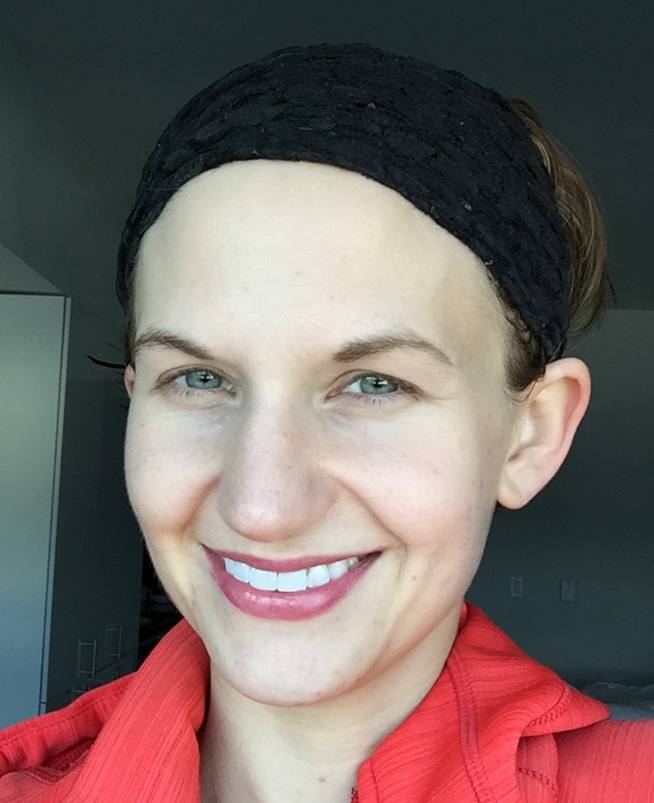Today we chat with Front-End Nanodegree graduate Victoria Jeffrey—read on to find out how this Udacity student completely changed her career.
 Just for a bit of background, you took Udacity’s Front-End Web Developer Nanodegree. But how did you originally get interested in web development?
Just for a bit of background, you took Udacity’s Front-End Web Developer Nanodegree. But how did you originally get interested in web development?
A little over a year ago, I had an idea for a communication services business based on the web, and I started attempting to build a website using a website builder. I quickly realized that was not ideal and I started looking into building it myself, and fell in love with code!
Typically we ask our grads about their experience with the Nanodegree program, but in this case, let’s focus on how you came to accept a new job because I think it’s really interesting—and I understand the job hunt went quickly! Can you tell us the story?
I was on all the big job posting boards and checking postings daily. While looking through job postings on FlexJobs, I made a list of potential awesome jobs, and chose one to apply for (I left the rest for later due to time constraints). That was the first resume I sent out. And I got the job!
Congrats! That’s awesome. Can you describe your job and where you’re working?
I work at Chef Software. Have you head of them? If not, check it out. They’re an amazing company with an amazing product, changing the way enterprises think about their infrastructure and code-shipping times. I’m on the Delivery team, working the front-end. HQ is in Seattle, but I’ll be working remotely after I’m done with my initial four weeks in Seattle.
“That was the first resume I sent out. And I got the job!”
How many interviews did you go on and were they both phone and on-site? What was the interviewing process like?
With Chef: initial interview was video-chat, followed by an eight-hour project (building an interface to work with users and groups based on an api written in Ruby/Sinatra) to be completed over the course of a week. After that, it was a day of interviews from about 9am to 3:45pm (all video-chat) with a couple hour break in the middle.
Are you happy with your salary?
While I can’t divulge my exact salary number, I will however, tell you that I’m extremely happy with my salary.
That’s great to hear. What were the most important aspects of a job for you to consider it?
I wanted to work with great people who understood I still had a lot to learn, but also understood that I could do it. I wanted it to be an honest process.
How would you specifically describe Chef, what they do and the company culture?
Well, the outcome of all this is the very best it could be for me. The company is amazing and they’re making some revolutionary products. Chef is the biggest name in DevOps for a reason—their culture encourages their software and vice-versa. It’s all about working together to make it work better.
“Be the person they want to work with.”
Do you have any advice for other grads or qualified people looking for jobs?
The interview is your time to shine.
Don’t lie about what you know; they know more than you, and they’ll see right through it. Be honest and if you don’t know what something is when an interviewer asks, it’s always OK to say, “I don’t know, but I’d love to learn if you wouldn’t mind giving me a quick summary.” And definitely do your follow-ups. If you feel like you didn’t answer that one question well (technical or otherwise), find out what a good answer would be and email the person who interviewed. Let them know you took the time to look it up and learn. It shows you have the initiative to learn on your own, even when you might feel defeated and the action might seem futile.
Listen, and let them do most of the talking if possible. Find common ground. Take an interest in their stories. Be the person they want to work with. You can always learn more technical skills given the time and opportunity (it’s not rocket science, just something you haven’t learned yet); it’s important to connect with your interviewers as someone they will want to be talking to every day. Remember to turn the conversation around and ask questions. Always follow up afterwards; it never hurts.
Want to share your Udacity story and be featured on our blog? We want to hear from you! Drop us a line at social@udacity.com.


